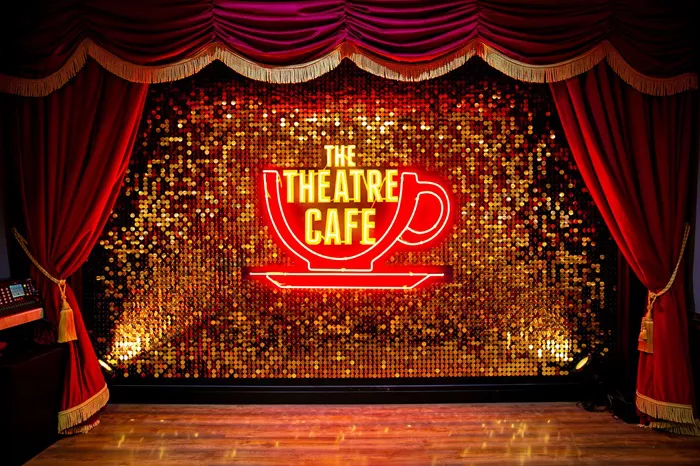Café theatre is a unique and vibrant form of performance that combines the intimacy of a café setting with the excitement of live theatre. This genre has evolved over time, reflecting changes in cultural attitudes and artistic expression. In this article, we will explore the history of café theatre, tracing its origins, development, and impact on the world of performing arts.
See Also: A Deep Dive into the Origins of Term “Café”
Origins of Café Theatre
Café theatre has its roots in the late 19th and early 20th centuries. It emerged from the tradition of performing arts that took place in intimate, informal settings. The concept was influenced by various theatrical movements and social changes.
During the late 19th century, cafés in Europe, particularly in France, began to host performances. These venues were ideal for showcasing theatre because they were relaxed and accessible. Artists and playwrights sought to reach audiences in a more personal and direct way, away from the grand stages of traditional theatres.
Early Influences and Developments
The early development of café theatre was heavily influenced by the bohemian culture of Paris. The Montmartre district was a hotspot for artists, writers, and performers. Cafés like Le Chat Noir became famous for their lively performances and avant-garde spirit.
Le Chat Noir, established in 1881, is often considered one of the first venues to combine café culture with theatre. It was known for its cabaret-style performances, which included music, comedy, and drama. The café attracted a diverse audience, including intellectuals, artists, and ordinary citizens.
In the early 20th century, café theatre continued to grow in popularity. The movement spread to other European cities, including Berlin and Vienna. Each city added its unique flavor to the genre, reflecting local cultural and artistic trends.
Café Theatre in the 20th Century
The 20th century saw significant changes in the café theatre scene. The genre evolved to include various forms of performance, from experimental theatre to stand-up comedy. The café setting provided a flexible space for artists to experiment and connect with their audiences.
In the 1920s and 1930s, café theatre became a platform for political and social commentary. Performers used the intimate setting to address contemporary issues and challenge societal norms. This period saw the rise of influential theatre groups and artists who made a lasting impact on the genre.
One notable example is the Berliner Ensemble, founded by Bertolt Brecht. Although not exclusively a café theatre group, Brecht’s work was influential in shaping the genre. His focus on political theatre and audience engagement resonated with the café theatre ethos.
Café Theatre in America
Café theatre eventually made its way to the United States, where it found a new audience. In the mid-20th century, New York City became a hub for café theatre. Venues like Café Society and The Village Vanguard hosted performances that blended theatre with other art forms.
Café Society, established in 1938, was known for its performances that combined theatre with music and dance. It attracted a diverse audience and became a cultural landmark in New York City. The venue played a crucial role in shaping the American café theatre scene.
In the 1960s and 1970s, the café theatre movement gained momentum in the U.S. during the countercultural revolution. Artists and performers used café settings to explore new forms of expression and challenge mainstream culture. The genre became associated with the avant-garde and experimental theatre movements of the time.
Contemporary Café Theatre
Today, café theatre continues to thrive around the world. Modern venues often feature a mix of traditional and contemporary performances, reflecting the genre’s evolving nature. The intimate setting of cafés provides a unique space for artists to connect with audiences and explore new creative ideas.
Contemporary café theatre includes a wide range of performances, from solo shows to interactive experiences. Many venues embrace multimedia elements, incorporating video and technology into their productions. This evolution reflects the genre’s ongoing adaptation to changing artistic trends and audience expectations.
Impact and Legacy
The impact of café theatre on the performing arts is significant. It has influenced various theatrical movements and continues to shape contemporary theatre. The genre’s emphasis on intimacy, experimentation, and audience engagement has left a lasting legacy in the world of performance.
Café theatre has also played a role in democratizing the arts. By providing a space for emerging artists and alternative performances, it has helped to broaden the scope of theatrical expression. The genre’s history reflects broader cultural and artistic trends, highlighting its importance in the evolution of modern theatre.
Conclusion
Café theatre is a vibrant and influential genre with a rich history. From its early roots in Parisian cafés to its contemporary manifestations, it has evolved and adapted to reflect changes in culture and art. The genre’s unique combination of intimacy and creativity continues to captivate audiences and inspire performers around the world.
As we look to the future, café theatre remains an important part of the performing arts landscape. Its legacy of innovation and engagement ensures that it will continue to play a vital role in the evolution of theatre. Whether in a historic café or a modern venue, the spirit of café theatre endures, celebrating the art of performance in its most personal and dynamic form.


